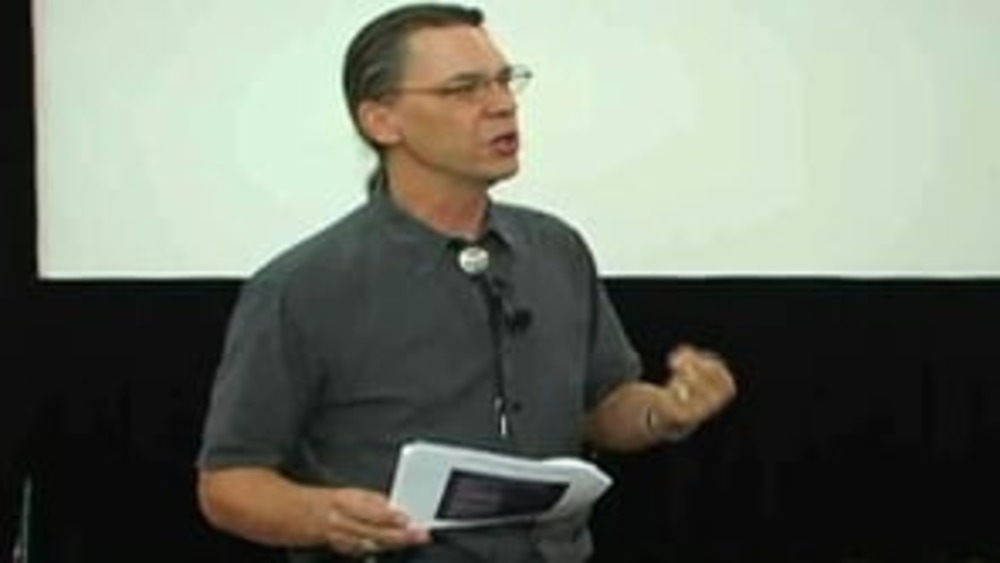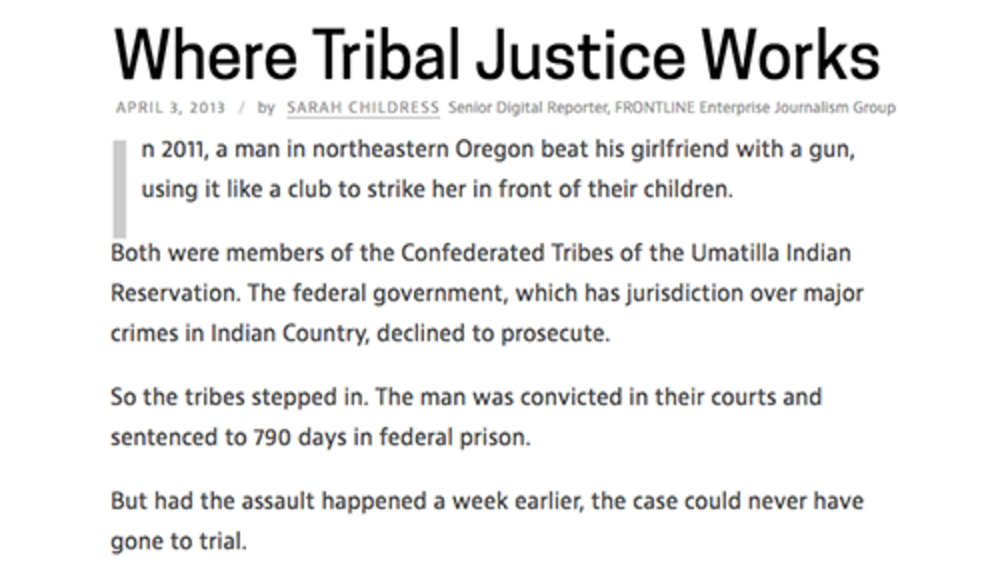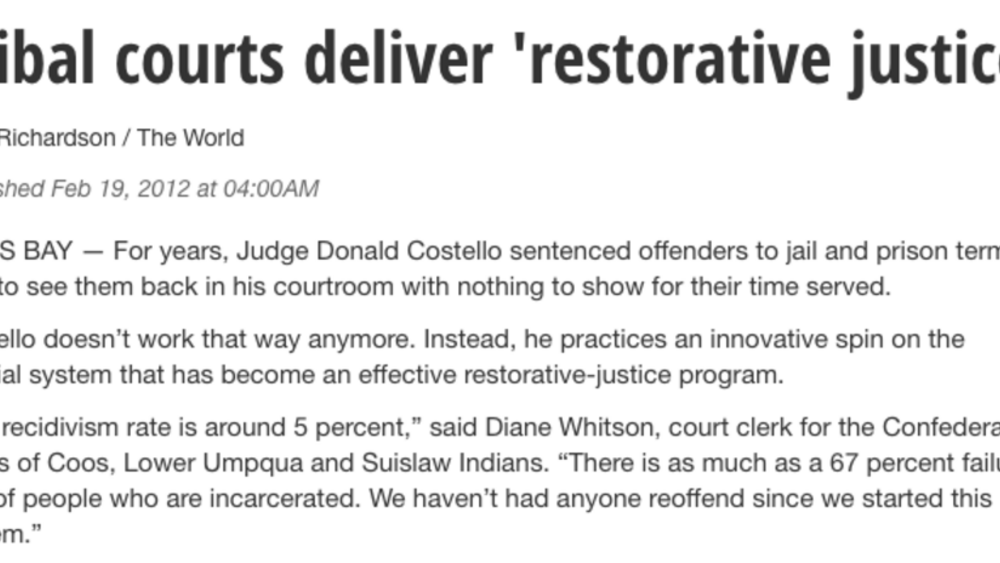Native leaders and scholars share some critical ways that Native nations can support their justice systems to ensure their effectiveness.
Additional Information
Hershey, Robert. Native Nations Institute for Leadership, Management, and Policy, University of Arizona. Tucson, Arizona. October 6, 2010. Interview.
LaPlante, Jr., Leroy. Native Nations Institute for Leadership, Management, and Policy, University of Arizona. Tucson, Arizona. August 12, 2010. Interview.
Pommersheim, Frank. Native Nations Institute for Leadership, Management, and Policy, University of Arizona. Tucson, Arizona. August 11, 2010. Interview.
Pouley, Theresa M. "Reclaiming and Reforming Justice at Tulalip." Emerging Leaders Seminar. Native Nations Institute for Leadership, Management, and Policy, University of Arizona. Tucson, Arizona. March 26, 2008. Presentation.
Vaughn, Rae Nell. "Tribal Justice Systems in the 21st Century." Indigenous Peoples Law and Policy Program, University of Arizona. Tucson, Arizona. September 16, 2009. Presentation.
Vaughn, Rae Nell. Native Nations Institute for Leadership, Management, and Policy, University of Arizona. Tucson, Arizona. September 15, 2009. Interview.
Transcript
Rae Nell Vaughn:
A lot of courts in Indian Country are set up the way we are. They’re statutory courts, and sometimes aren’t given the respect that they should be given. Let me assure you, tribal court is not a program. It is not a social program. It is a forum that is established to protect the people and enforce the law. But for whatever reason, and there are many I’m sure, there continues to be this tendency of a perception that these are just programs. Tribal court is nothing more than a program like social services, like legal aid -- it’s just a program.
Theresa M. Pouley:
Your law and justice system must be part of the whole tribal system. You have to be prepared as tribal council people, and tribal judges have to be prepared to stand shoulder to shoulder with their elected officials to say enough is enough, to say that it’s time to help our relatives heal.
Frank Pommersheim:
You’re involved with human beings, and I think from most tribal points of view is that they don’t want to cast those individuals out, but they want to try to hold on to them and work with them and try to reintegrate them into the community. And to do that, you need resources and capacity. And in the real world, that means having adequate law enforcement, having a fully-scaled tribal court system, having institutions that can help offenders who have been convicted or pled guilty. I think that those things are really, really important.
Leroy LaPlante, Jr.:
I think, at least, our tribal officials need to recognize our court system as a stand-alone entity that has a specific function, a very important function. What the courts do is so vital to tribal sovereignty. It is so vital to self-determination. It is so vital to us. You know, if we want to engage in any type of regulatory authority on the reservation, our courts have got to be equipped to be able to carry out adjudicating any matter.
Robert A. Hershey:
First and foremost, freedom from political interference. I think that’s pretty well-recognized, right? Qualified judges who receive the adequate training to deal with all manner of cases, because there’s an escalation of the number of cases coming in front of tribal courts with an escalation of the population on the reservations. And then there is escalation in the complexity of cases that come before it. So, independence, adequate training, adequate funding for programs, adequate court staff, technology that supports this.
Rae Nell Vaughn:
If you don’t feel that support from your government, then obviously the community’s not going to support you as well; and those are some key things that have to happen is to have that support. Now you and I may argue here, but when we step out as a judiciary and as a government, we need to be unified, because each of us as a legislative body and as an executive body -- whether we’re a judicial branch or a statutory court -- we still have to work and maintain as a stable government, because if your leadership is bad-mouthing you, judicial system, what does that say of the leadership?



